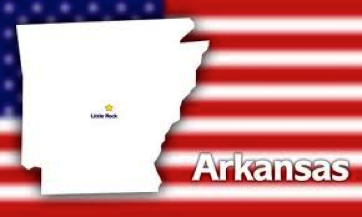
Unbelievable #1: A nation and a couple of its banks are about to default on their obligations and are in need of a bailout so the solution is to take up to 60% of individual depositors’ money? I can not even label it a tax as the banks / nation simply plundered the money from those who had trusted them with their money. Oh and to boot, all accounts are frozen to stop the sure run on their banks so each depositor’s withdrawals are capped at 300 Euros per day.
Clearly the EU did not want to set a precedent in bailing out the banks in Cyprus without a concession even though they are large holders of Greek bonds which did not go bust because of a bailout. Presumably the thinking is that France, Spain, Italy, etc… were watching and would also want to be bailed out without any concession.
Can you imagine how you would feel if your bank accounts were frozen and raided? What precedent does that set for savers in any country around the world?
Unbelievable #2: Your tenant fails to pay their rent and among your options is to serve a 10 day notice for “failure to vacate.” If the resident wants to fight it in court, they must post the entire amount of rent owed. Should the resident not leave in that 10 day period, a prosecuting attorney will take up the case and may charge them with a misdemeanor.

The long arm of the law is now on the side of the landlord at least in Arkansas. Given the games people play to delay evictions in many states, I think it fair to say that this would be a welcome tool for property owners everywhere. Human Rights Watch labeled this law “abusive.”
No, neither of these unbelievables are April Fools jokes; they are indeed real.
As I always enjoy meeting with economists who see the world differently than I do, I recently met with a fine writer and economist named Liaquat Ahamed whose book Lords of Finance won the Pulitzer Prize for History in 2010. The book discusses the personal histories of the four heads of the Central Banks of the United States, Great Britain, France, and Germany and their efforts to steer the world economy from the period during the First World War until the Great Depression. The book also discusses at length the career of the British economist John Maynard Keynes who criticized many of the policies of the heads of the Central Banks during this time.

Mr. Ahamed is an economist and is a hedge fund manager, a Brookings Institution trustee and graduate of both Harvard and Cambridge. He shared his thoughts on the parallels between the financial crisis of 2008 and the Great Depression.
In short, Mr. Ahamed admired how after the 2008 financial crisis, the United States pumped liquidity into the system and raised the currency supply. He was far less concerned with Debt to GDP and gave an example of England in the early 1800’s who successfully paid off a national debt that was 300% to GDP. Unfortunately, when I asked for any other example in history where a nation was able to recover after borrowing so much, he didn’t have one.
While I respect Mr. Ahamed’s Keynesian point of view and am hopeful that “the next big thing” as he put it (which drives an economy) is centered in the United States, I remain comfortable hedging inflation with commercial real estate. I expect more crisis’s in Europe as the “can kicking” slowly comes home to roost along with continued Quantitative Easing in the US.
While Mr. Ahamed didn’t offer any investment tips, my next big thing is more properties. Last month I closed 2 commercial purchases and have one more apartment building in escrow so I’m betting my money on real estate. That said, given my concerns about our economy, two of the three properties were purchased without any bank debt since I want to be careful about any future shocks.

